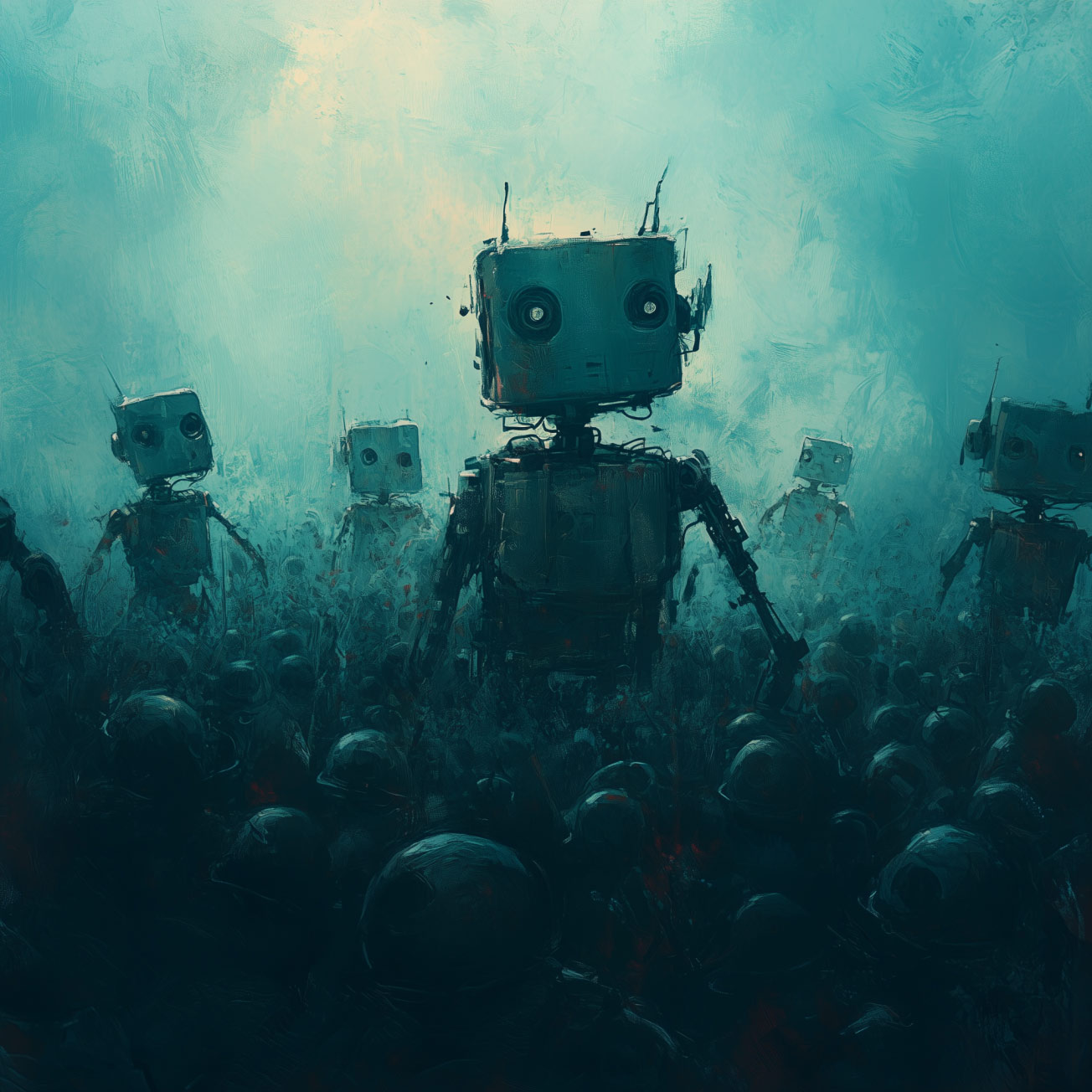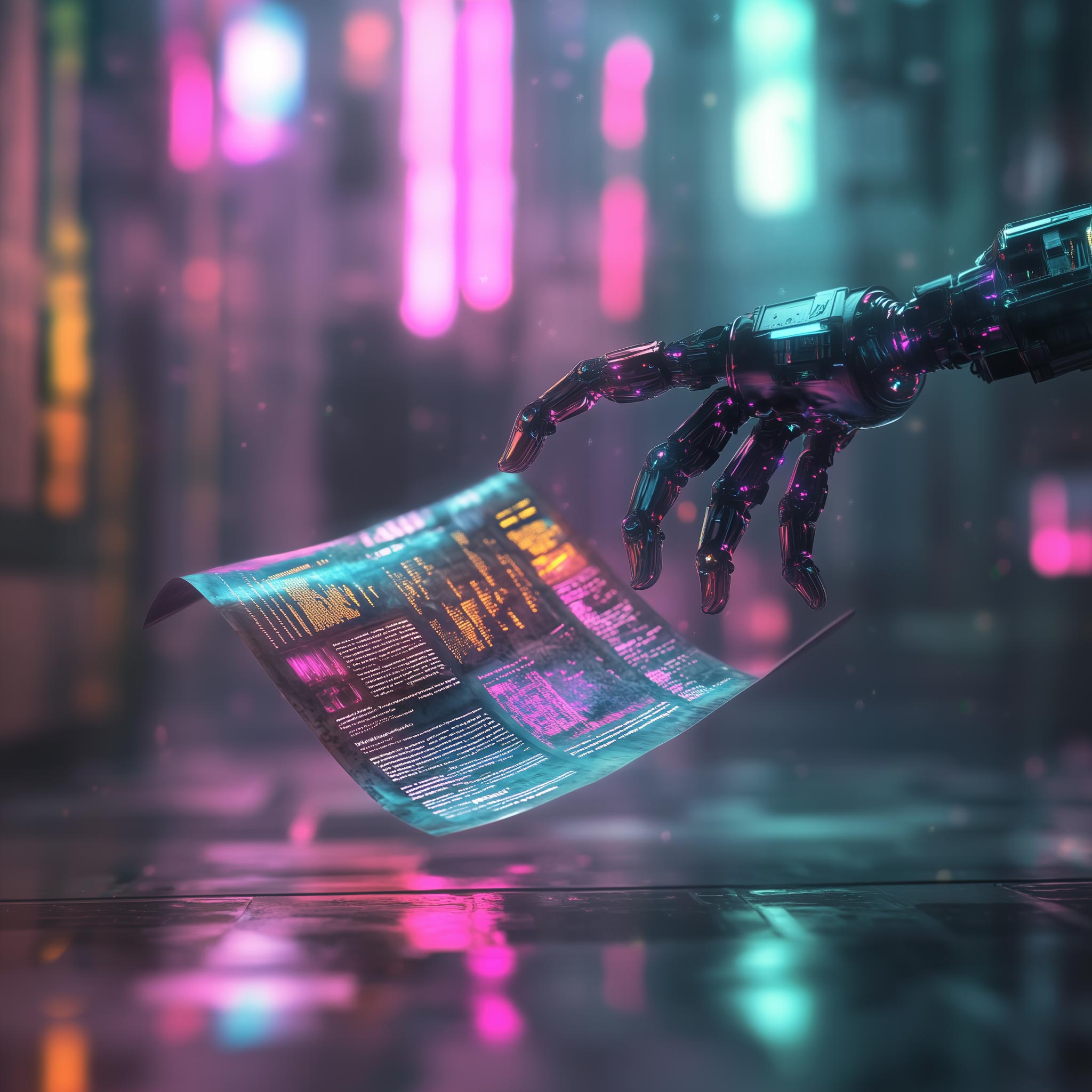The AI Revolution Is Here—Are We Ready?
Every major technological shift has sparked both excitement and fear. The steam engine, electricity, and computers—all faced resistance before becoming essential to progress. AI is the next big shift, and it’s already transforming industries. While it will boost efficiency, create new opportunities, and open doors to roles we haven’t even imagined yet, it will also disrupt countless jobs. The challenge for businesses and workers isn’t whether AI will change the job market—it already is. The real question is how we adapt.
Which Industries Will See the Biggest Changes?
AI is set to impact nearly every industry, but some will see more drastic shifts than others. Here’s a look at the sectors most affected and the types of jobs that will evolve—or disappear:
Customer Service
Automated chatbots and AI-driven virtual assistants are already handling customer queries, order tracking, and troubleshooting. While this reduces the need for human representatives handling routine queries, it also creates demand for AI trainers and conversational AI designers who refine and improve these systems.
Transport and Logistics
Self-driving vehicles and AI-powered logistics planning will change how goods and people move. Traditional roles like truck drivers, taxi drivers, and warehouse workers will decline, but we’ll see a rise in jobs like autonomous vehicle engineers and AI logistics specialists.
Manufacturing
AI-powered robots and smart factories are taking over repetitive, manual tasks. However, these factories still need human oversight, meaning roles will shift towards robotics engineering and AI maintenance rather than traditional assembly line work.
Data Entry and Admin Work
AI excels at processing large amounts of data quickly and accurately, making roles like data entry clerks and administrative assistants vulnerable. On the flip side, businesses will need data scientists and AI analysts to make sense of all that data.
Financial Services
AI is already being used in algorithmic trading, fraud detection, and financial analysis. While traditional analyst roles will decline, there will be growing demand for AI finance specialists and algorithmic trading developers.
Healthcare
From AI-assisted diagnosis to automated administrative work, AI will play a major role in healthcare. While radiologists and pharmacists may see aspects of their jobs automated, new roles like AI healthcare specialists and medical data analysts will emerge.
Education
AI-powered learning platforms can personalise lessons and automate grading, reducing the need for teaching assistants in some areas. However, this shift will also create opportunities for AI education specialists and learning experience designers.
E-commerce & Retail
AI-driven product recommendations, chatbots, and pricing tools are already shaping online shopping. While traditional retail jobs decline, AI marketing specialists and e-commerce analysts will be in demand.
The reality is that AI won’t simply eliminate jobs—it will reshape them. Some roles will become obsolete, but many will evolve into something new. The key for workers and businesses is to prepare for this shift rather than resist it.
What Tasks Are Most at Risk of Automation?
Not every job will disappear, but certain tasks are particularly vulnerable:
-
Repetitive, rule-based tasks – AI is excellent at following patterns and rules. Data entry, bookkeeping, and appointment scheduling are all at risk.
-
Tasks with minimal human interaction – AI struggles with empathy and complex interpersonal skills, but it can handle basic customer inquiries, process transactions, and sort through large datasets.
-
Jobs where efficiency matters most – If AI can do a task faster and cheaper than a human, businesses will lean towards automation. This applies heavily to logistics, administration, and parts of finance.
However, there are also jobs that AI simply can’t replace—at least, not yet.
The Jobs AI Won’t Take
There’s a lot AI can do, but some tasks still require human skills that machines struggle to replicate:
-
Critical Thinking & Problem Solving – AI can process data, but it can’t think strategically or weigh ethical considerations the way humans can.
-
Creativity & Innovation – AI can assist with creative tasks, but original ideas, storytelling, and artistic vision remain deeply human skills.
-
Emotional Intelligence & Interpersonal Skills – Whether in therapy, education, or leadership, human connection remains irreplaceable.
-
Adaptability & Learning – AI can be trained, but it doesn’t “learn” in the way humans do. Workers who can evolve with changing demands will always be valuable.
The New Jobs AI Will Create
Just as the Industrial Revolution led to entirely new professions, AI will introduce roles we’ve never seen before. Some of the jobs likely to grow include:
-
AI Engineers – Building and refining AI systems requires skilled professionals in data science, programming, and machine learning.
-
AI Trainers – Many AI systems rely on human feedback to improve. AI trainers help refine chatbot conversations, voice assistants, and automated processes.
-
Prompt Engineers – As AI-generated content becomes more common, specialists will be needed to create effective prompts for AI tools like ChatGPT.
-
AI Ethicists – With AI making critical decisions, businesses will need professionals who ensure ethical and unbiased use of AI.
-
AI Healthcare Specialists – Combining medical expertise with AI knowledge, these professionals will help integrate AI into healthcare settings.
We’re also likely to see AI enhance traditional roles, acting as a “force multiplier” for human creativity and efficiency. Marketers will use AI to fine-tune campaigns, architects will use it to model structures, and lawyers will use AI-driven research tools to analyse cases faster than ever before.
The Future of Work: Adapt or Struggle
We’re at a turning point. AI is here, and it’s not slowing down. Businesses and workers have two choices: evolve with it or risk falling behind.
For businesses, this means investing in AI tools, training employees, and rethinking job roles to integrate AI rather than resist it. For workers, it means focusing on skills that AI can’t replicate—creativity, problem-solving, emotional intelligence, and strategic thinking.
Governments and policymakers will also need to play a role in ensuring AI’s impact on society is positive. This includes investing in reskilling programs, updating education systems to include AI literacy, and ensuring workers have support during transitions.
Final Thoughts
AI isn’t just another trend—it’s a fundamental shift in how we work. Some jobs will disappear, but new ones will emerge. The key is to stay ahead of the curve, learn to work with AI rather than against it, and embrace the opportunities it brings.
The businesses and individuals who prepare now will be the ones who thrive in the AI-driven future. The question is: are you ready to evolve with it?



